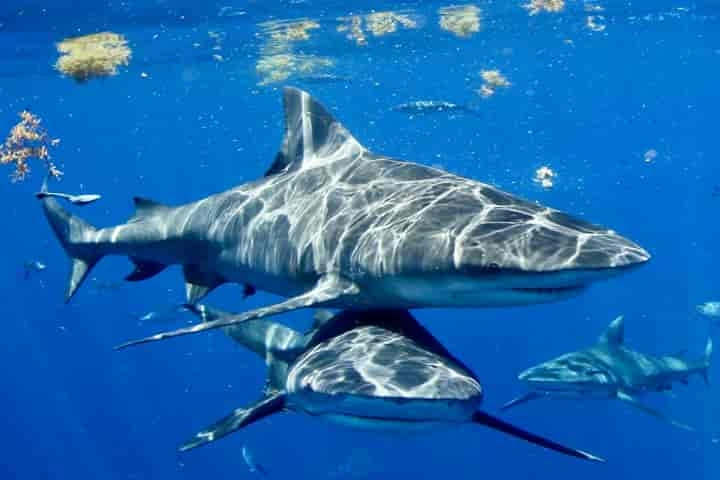While they are known as the top predators of the oceans and seas, sharks are also remarkable for another reason. They, according to a report in livescience.com have been on this planet for at least 450 million years if not more. Within this timeframe, they have survived four of the big mass extinctions. This includes the one which occurred 66 million years ago in which non-avian dinosaurs got wiped out at the end of the Cretaceous period.
This long innings of survival has always intrigued the scientists who were eager to know their key to success.
The first possible reason suggested is that these creatures have the capability of changing their physiology and physical characteristics based on the changes in the environment, like reducing their size when there is an increase in temperatures. Thus, making them fast in adapting to changes rapidly taking place in their habitats.
This group of elasmobranch fish are closely related to rays, chimeras and skates. All of them belong to the group called Chondrichthyes – who are distinct – as the majority of their skeleton is made of cartilage rather than bone. Studies have shown that skates have proved their ability to adapt when there is a change in water temperature of their habitat. A study published in Royal Society Open Science journal has talked about a winter skate community whose habitat is in the southern Gulf of St. Lawrence in Canada, adjusting to water temperatures which shot up by 10 degrees Celsius, by decreasing their body size by 45 per cent in a time span of 7,000 years.
While 7,000 years may seem very long for mankind, it is a short duration in evolutionary terms. This made the researchers realise that the rapid adaptability and change in the size of these winter skates was an epigenetic response – wherein a gene expression alters because of environmental factors — rather than natural selection.
Talking to Live Science, Christopher Lowe who is a Professor of Marine Biology and also the Director of the Shark Lab at California State University Long Beach said that there are some species of sharks which are different as they have very large genomes. These may have genes that may not be useful to them at present but enabled them to cope with the changes in climatic conditions in the past.
Another interesting aspect about sharks is their capacity to move between saltwater and freshwater habitats. The well-known bull shark is an example of this. A characteristic like this must have helped the shark species of the past to adjust when large quantities of fresh water reached oceans when ice caps melted because of global warming.
Sharks can manage in diverse water columns – from deep oceans to seas which are shallow to rivers. They are able to eat a variety of food including fish, crabs, plankton, seals and even whales, as per London’s Natural History Museum. That means when the source of food dwindles, as a group sharks can manage with something else. These two remarkable qualities provide them a better chance to survive in adverse circumstances.
Yet, sharks despite all these abilities which have helped them survive for such a long period, are now threatened as they face a daunting challenge – humankind and its activities.
Commenting on this Gavin Naylor, Director of the Florida Program for Shark Research said: "Sharks have been able to deal with climatic changes in the past fairly well, but the biggest challenge to the world's sharks and rays today is overfishing. There are no clever tricks that these animals can resort to contend with being fished out of the water."
Adding to this, Lowe said: "The effects of pollution, contaminants and habitat loss also likely factor into their loss in some places.”
As the top predators, the role sharks play in the ocean ecosystem is very vital. Expressing his view on this Naylor said: "If you remove the apex predators, it upsets the apple cart and could result in all sorts of changes in the system.”
Also read: Not just meat, giant Whale sharks also gorge on plants




















